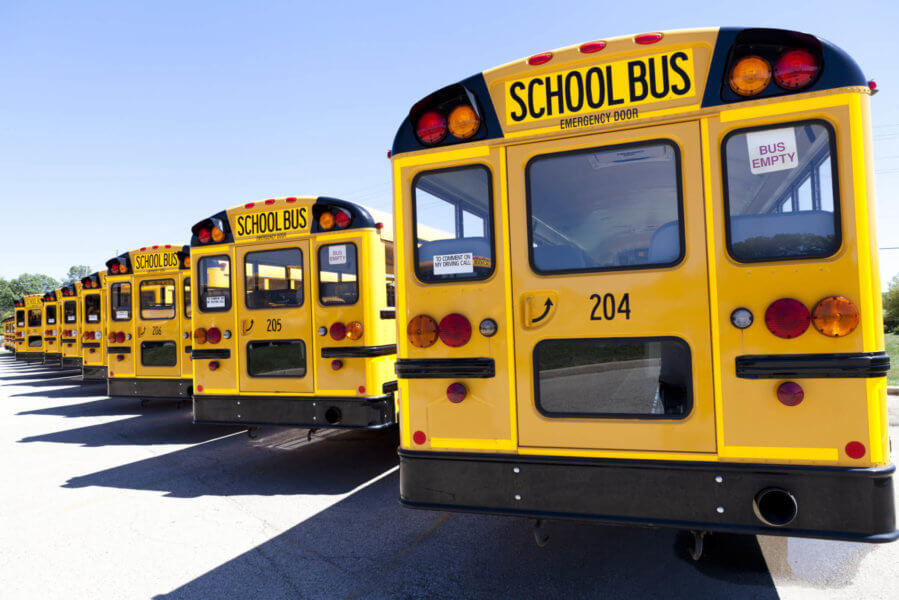
Charter schools don’t charge tuition and can’t hold a religious affiliation—but they do take away from public school funding.
RICHMOND—Ask a parent, teacher, or student if their local school could utilize more funding. You’ll probably hear a universal answer: “no.”
If more charter schools rise up and expand in Virginia, like Gov. Glenn Youngkin wants to see happen, funding for the commonwealth’s public schools would decrease. That’s because a charter school is publicly funded, but independently run.
There are currently seven charter schools in Virginia, according to the Virginia Department of Education. During his campaign and since taking office, Gov. Glenn Youngkin expressed hope to see the number of commonwealth charter schools rise.
On Jan. 26—within his first two weeks in office—the new governor issued a proclamation recognizing Jan. 23-29, 2022, as Virginia School Choice Week. In the proclamation, Youngkin reaffirmed his commitment to adding at least 20 new charter schools to the commonwealth’s educational offerings, with a goal of $150 million.
More Charter Schools in Virginia?
According to the National Charter School Resource Center, charter schools are exempt from significant state or local operation and management regulations. Yet, they still receive public dollars—so more charter schools in a state equals less money for traditional school divisions, even though they’re operated under different standards.
Currently in the General Assembly, Senate Bill (SB) 125 proposes the implementation of regional charter divisions in Virginia. Introduced by Republican Sen. Mark Obenshain, the bill aims to switch up to three existing divisions into charter divisions.
The divisions in jeopardy of SB 125 would:
- Have an enrollment of more than 3,000 students
- Contain at least one school that didn’t receive accreditation status for two out of the past three years
The bill also calls for an eight-member school board appointed by the Board of Education, and one member appointed by the localities of each division. That board, after a review by the Board of Education, would also have the power to review and approve regional public charter school applications and contract with those applicants.
Money talk also made its way into SB 125, noting that the state share of Standards of Quality per pupil funding would be transferred from the district to the charter school.
The National Expansion of Charter Schools
While there are currently just seven charter schools in Virginia, Youngkin expressed hope to expand that number. But would that be good for Virginia and the commonwealth’s public schools?
Kyle Serrette, a senior policy analyst at the National Education Association, spoke at a virtual policy summit hosted by The Commonwealth Institute in December 2021. During his presentation on community schools, he also touched on charter schools and their impact, bringing attention to concerning trends.
“Something weird happened in the year 2000,” Serrette said. “In 2000, the number of students enrolled in charter schools started doubling every four years—2004, 2008, 2014, it was about that. And whenever we saw charter schools growing, we saw public enrollment going down.”
Serrette highlighted a situation in Broward, Florida, where public school enrollment numbers declined after charter schools entered the area. In a 2019 article published in local newspaper South Florida SunSentinel, the division lost more than 2,000 K-12 students to the then-88 charter schools in a single year.
In 2019, New Orleans, Louisiana, became the first large American city to not offer a traditional public school to local children. Instead, all offerings switched to charter schools. According to a local news article published by The Lens at the time, the Orleans Parish school district made the decision after a decline in district schools due to closures, coupled with charter organization takeovers.
Serette noted a similar rise in charter and fall in public school enrollments in other major cities across the nation, such as Los Angeles, California, Milwaukee, Wisconsin, and Miami, Florida, as well as covered some of the concurrent funding history of charter schools.
“The problem we have here is [that] half of their narrative is correct. Meaning, there are some public schools that for generations, or ever, have not been equitable places for learning, right? The answer is not to privatize them and tear down public school systems. That’s what they say: every public school, every parent, deserves a choice—they deserve charter schools, they deserve voucher schools,” Serrette said. “So we know that the vast majority of public schools are amazing, but we also know we have a zip code issue, right, because of how we fund the schools and beyond.”
SB 125 was referred to the Committee on Education and Health on Jan. 7.
Politics

Biden administration bans noncompete clauses for workers
The Federal Trade Commission (FTC) voted on Tuesday to ban noncompete agreements—those pesky clauses that employers often force their workers to...

Democratic shakeup in Virginia primaries for governor, lieutenant governor
Richmond Mayor Levar Stoney quit his bid for governor and jumped into the race to be the Democratic nominee for lieutenant governor. The race for...
Local News

The zodiac signs of 12 iconic women offer insight into their historic accomplishments
Zodiac signs can tell you a lot about someone’s personality. Whether they’re an earth, water, air, or fire sign, these 12 categories (which are...

Virginia verses: Celebrating 5 poetic icons for National Poetry Month
There’s no shortage of great writers when it comes to our commonwealth. From the haunting verses of Edgar Allan Poe, who found solace in Richmond's...





